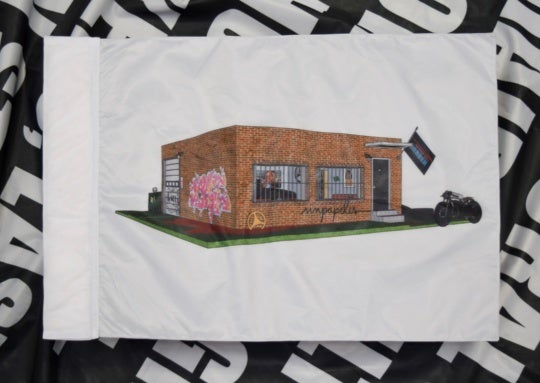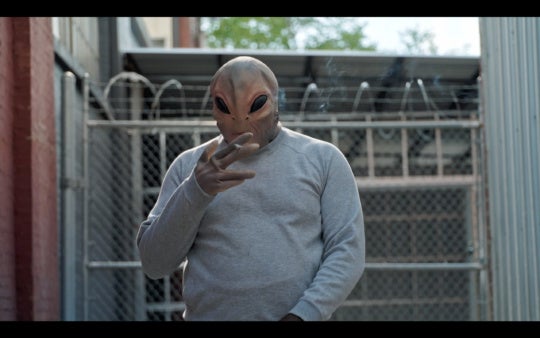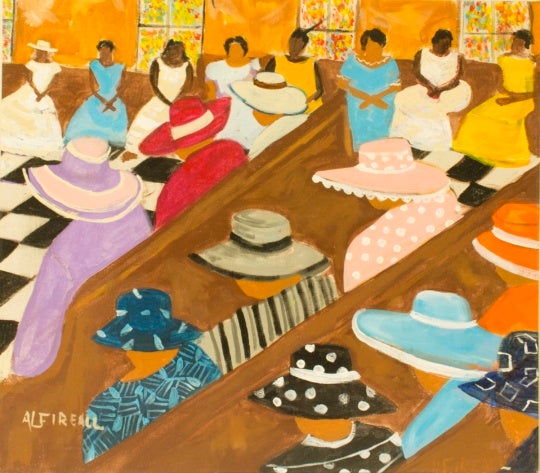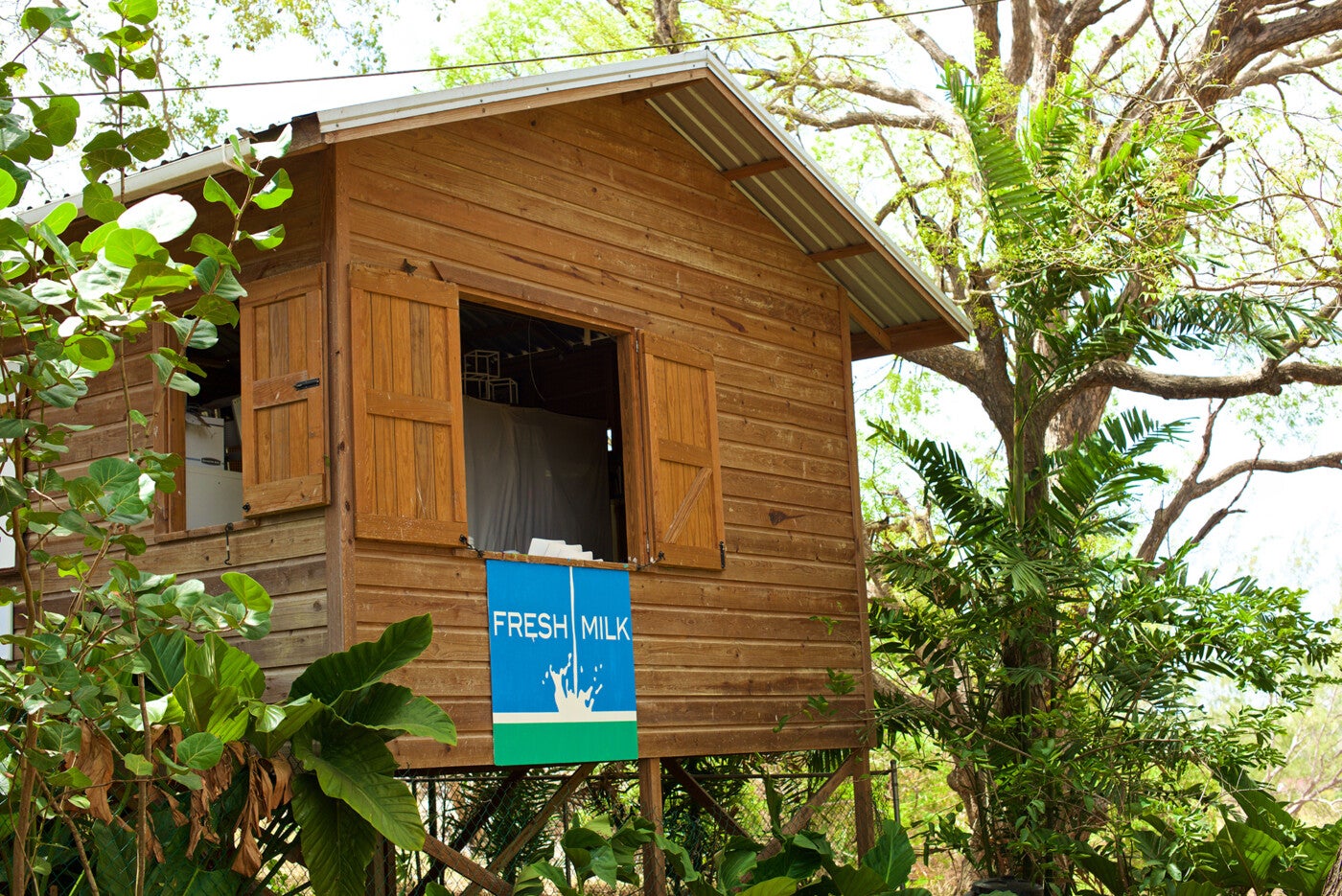
It’s the Wednesday after the CARICOM high-level meeting about Haiti, and I’m at Fresh Milk Barbados Contemporary Arts Platform to interview its core team, Annalee Davis and Katherine Kennedy. They’ve just received a milestone $350,000 USD unrestricted grant from Mellon Foundation, the largest supporter of the arts and humanities in America.

Butterflies fill my stomach until I remember Caribbean artists and writers of the 80s. They thought we’d be further along. For the last twelve years, Fresh Milk has faced the region-wide challenge of convincing the public, policymakers, and fiscally strained governments its existence is important. In the absence of major state funding or consistent contributed income, relationships and hours of unpaid labor fueled its founding vision to nurture, empower, and connect Caribbean artists, raise regional awareness about contemporary arts, and provide global opportunities for growth, excellence, and success through artists residencies and developmental programs. When Mellon reached out, this energy was waning.
I’m used to visiting Fresh Milk’s studio when it’s hectic. Sometimes I imagine my ancestors roaming this former plantation ground, telling me not to drop my guard. Today is quieter. “Yuh finally land!” sings Annalee. Katherine smiles.


Amanda Haynes: How did you feel when you got the grant?
Annalee Davis: There were several feelings. I think the primary one was relief. Shock at the simple process that we went through contributed to the disbelief, because Katherine and I just could not believe that this was so straightforward. In a later conversation with my colleague Lise, she articulated that we were both so exhausted and, as you know, at the finish line of Fresh Milk. She couldn’t believe that we were not more ecstatic, and it really forced me to reflect on that.
Katherine Kennedy: I was in a meeting with my colleagues Margriet, Gerrit, and Holly talking about Caribbean Linked and I messaged Annalee asking: ‘Have you checked your email?’ I told her ‘The grant is approved.’ She burst into tears. There are some things I have struggled with on a personal level, and working in an unstable position did not help. Lise articulated it well in our next meeting; if you have put this much investment of time and effort into something with pretty much no money, is there something in the back of your mind that is thinking, dear God, what does 350,000 USD worth of work look like?
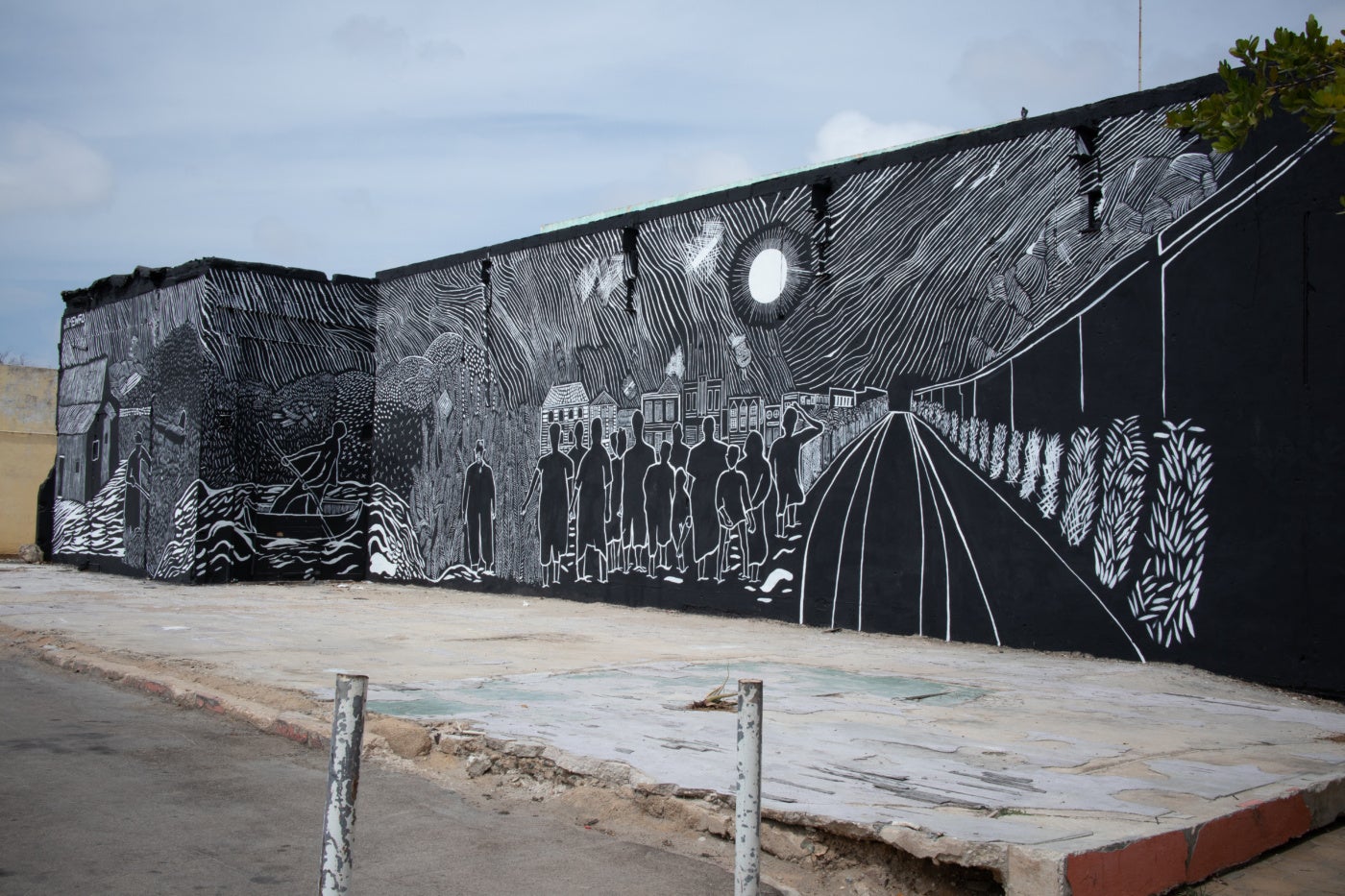
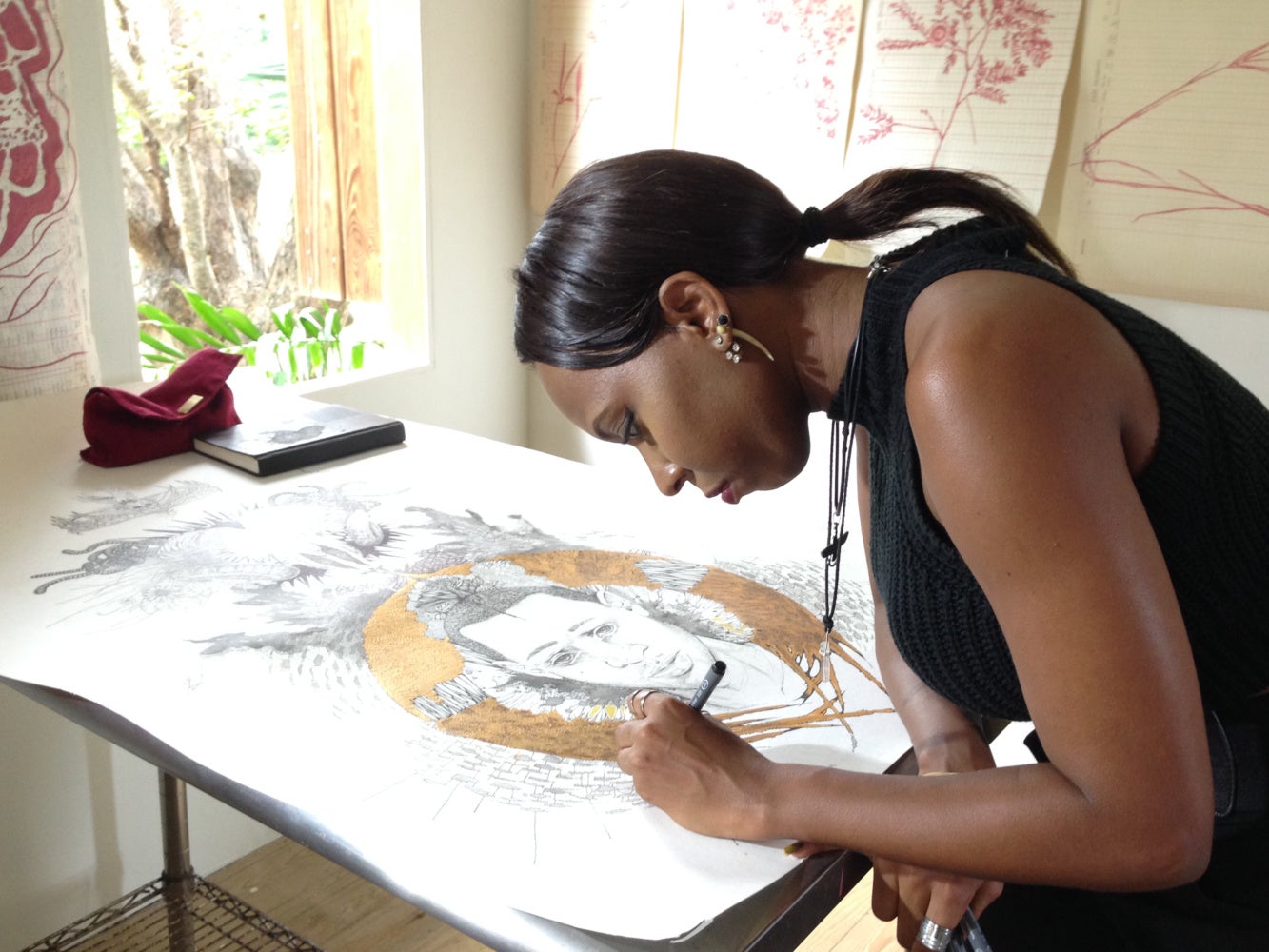
Why did the disbelief run so deep?
KK: Maybe there’s this thing weighing on you, thinking you can’t be fully happy because all you can feel is the work that you have to do, and the pressure that comes with it. So that’s when it was my turn to burst into tears in this meeting – very professionally – and Lisa told me that her husband calls crying “journaling with your face”. And I was like, I’ll just make an entry.
AD: It was like somebody put their arm around you, and you’re so unaccustomed to being cared for or nurtured. There’s also this larger question about decolonizing grant-making institutions. There are granting institutions here that won’t put money in the hands of artists. Why? This is the underpinning of why Fresh Milk exists, to see its ethos as a space that nurtures younger practitioners. I’ve had past students tell me they feel like the outside child of the College. It’s so interesting how receiving this grant has raised all these questions about the artist’s place in contemporary Caribbean society.

What inspired Fresh Milk’s planned regranting program for Caribbean artists?
KK: The COVID-19 pandemic changed Fresh Milk in the sense that our in-person residency stopped. When we partnered with Kingston Creative for Catapult what emerged was the idea of a ‘Stay Home Residency’. That was hugely influential as well, knowing the artists could get support in a time where there was—
AD: Nothing.

KK: Exactly. It’s really informing how we’re thinking about this grant and this idea. I was speaking to another artist Ada Patterson who was one of the Catapult Stay Home Residents, about the idea of continuing to offer unrestricted grants and she agreed on how amazing that was. And then just to speak again to the way the arts environment has changed over the 13 years since I graduated, these young people that we’ve worked with over these years, many of them have continued creating and continued making. So now if we offer a grant to stay home that allows you to cover your living expenses while you make work…There’s now a critical mass of practicing artists in Barbados that can apply for that. We wouldn’t be able to offer a regranting program and have the same impact 10 years ago.
AD: Yes. And, I think in the regranting, the same level of generosity which Mellon has given to us, we give to the artists who apply. We’ve just made our first donation to the Barbados Community College, where this started, and it’s all beginning to feel good.

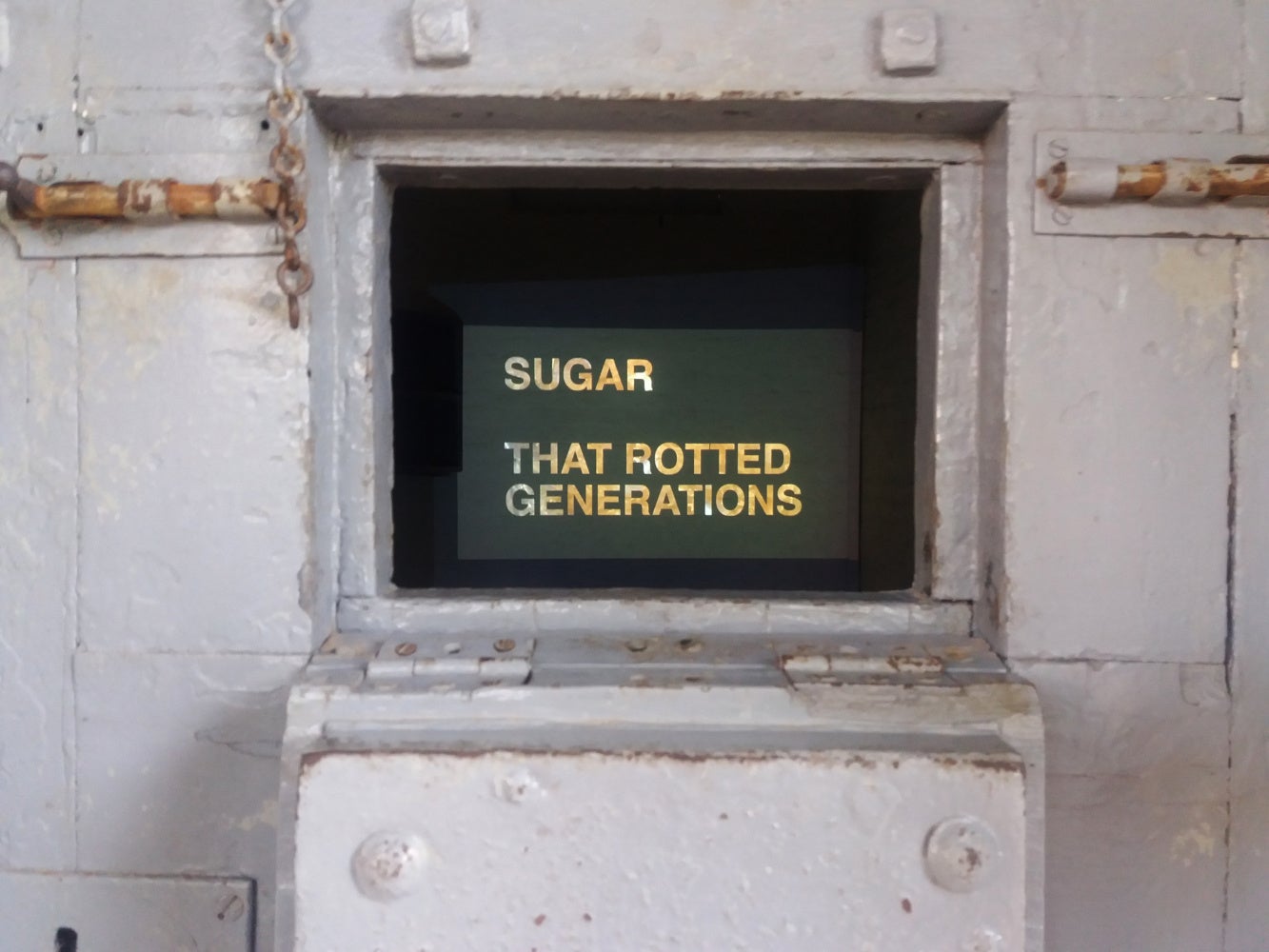
Do you think this grant award reflects a wider change in philanthropy?
AD: I think there is a shift in the American philanthropic system, in that people in the Caribbean diaspora are being put into positions of power in cultural institutions. So, you’re talking to people who are maybe African American or from a diaspora that are influencing decision-making processes in their organizations. They have a greater sensitivity to this part of the world, which hopefully is not going to be a drop in the pan. What do you think, Katherine?
KK: I mean, I hope it’s a broader, wider change because I think that’s the whole idea of philanthropy and supporting the space. I think it’s gotten very skewed by capitalism over the years. What people don’t realize is that most people applying for some of the bigger, more onerous grants are not the kind of people that would take money and run. They’re applying for this because of their belief. So, to have that reflected in the philanthropic or the grant-giving process, I think that’s important.
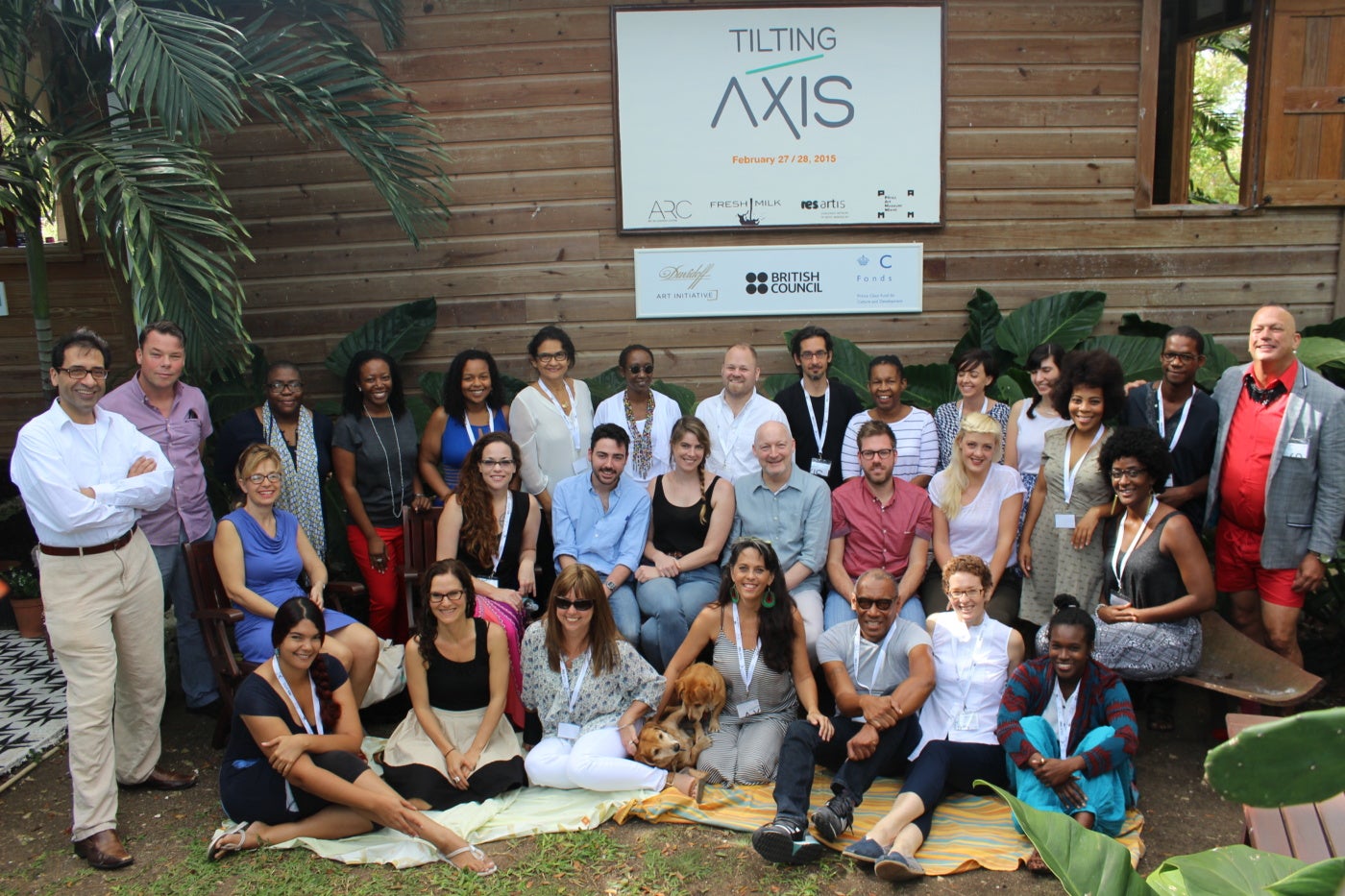
What’s been your happiest moment in Fresh Milk’s history?
AD: The Tilting Axis fora have been so rewarding for me. I think it’s the combination of finding my tribe at each of these five gatherings and the feeling of having plugged into a source of energy that affirms the importance of the art sector with friends, colleagues, and associates from across the Caribbean and its diaspora.
KK: For me, it is the opening exhibition for Caribbean Linked IV at Ateliers ‘89 in Aruba in 2016. The effortless bonds participants cemented with one another were so genuine and unique. It was the first time I really understood the rarity, power, and privilege of being that closely connected with artists across the region on that scale. I couldn’t imagine that feeling being replicated. I was wrong, as I’ve had just as much love and respect for new circles of dynamic, remarkable artists at CLV and CLVI.

